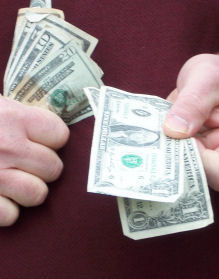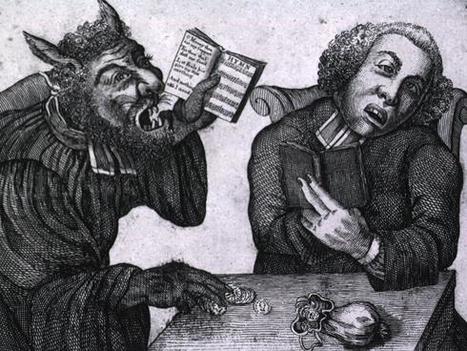Classical economic models assume that people are fully rational and selfish, while experiments often point to different conclusions. A canonical example is the Ultimatum Game: one player proposes a division of a sum of money between herself and a second player, who either accepts or rejects. Based on rational self-interest, responders should accept any nonzero offer and proposers should offer the smallest possible amount. Traditional, deterministic models of evolutionary game theory agree: in the one-shot anonymous Ultimatum Game, natural selection favors low offers and demands. Experiments instead show a preference for fairness: often responders reject low offers and proposers make higher offers than needed to avoid rejection. Here we show that using stochastic evolutionary game theory, where agents make mistakes when judging the payoffs and strategies of others, natural selection favors fairness. Across a range of parameters, the average strategy matches the observed behavior: proposers offer between 30% and 50%, and responders demand between 25% and 40%. Rejecting low offers increases relative payoff in pairwise competition between two strategies and is favored when selection is sufficiently weak. Offering more than you demand increases payoff when many strategies are present simultaneously and is favored when mutation is sufficiently high. We also perform a behavioral experiment and find empirical support for these theoretical findings: uncertainty about the success of others is associated with higher demands and offers; and inconsistency in the behavior of others is associated with higher offers but not predictive of demands. In an uncertain world, fairness finishes first.
Research and publish the best content.
Get Started for FREE
Sign up with Facebook Sign up with X
I don't have a Facebook or a X account
Already have an account: Login

 Your new post is loading... Your new post is loading...
 Your new post is loading... Your new post is loading...
|
|











Νatural selection favors fairness.